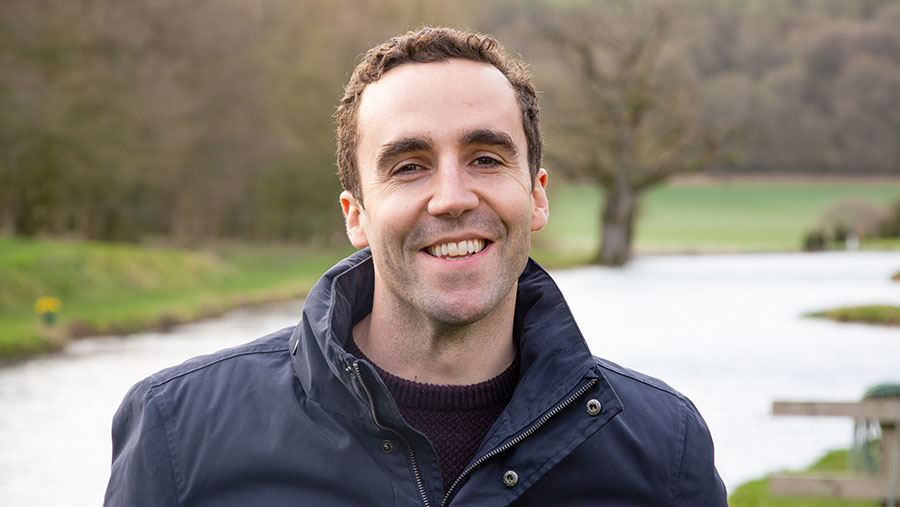Job profile: What’s it like to run an agri-tech start-up?
UK farming is on the brink of a fourth agricultural revolution, with artificial intelligence, robotics and big data expected to transform the future of food production.
As such, it will need to attract talent with the appropriate skill set to research, develop and operate a range of exciting new technologies.
We asked Sam Watson Jones, founder of the Small Robot Company, for an insight into his own career path and his thoughts on agri-tech as a career option.
See also: See more job profiles and ag careers advice

Sam Watson-Jones
Tell us about your job
I run an ag start-up, although I am also involved in the family farm. Our business is working to commercialise a service that will see small robots seed, feed and weed arable crops autonomously, with minimal waste.
This will cut chemicals by up to 95%, prevent soil erosion and run-off, and reduce cultivation emissions by up to 90%.
What experience did you have before starting the company?
When I went to study English literature at Newcastle University, I had no intention of going into farming.
During my studies I spent time with the Newcastle Agrics and that reconnected me with everything that is great about the industry, but I knew I didn’t want to go straight back and preferred to do something that would give me broad business experience.
My first job after graduating was with the Teach First graduate scheme, which saw me teaching English in an inner-city school for two years. I was completely out of my depth and it was sink or swim, but I learned huge amounts from it.
It taught me how to manage myself, stay calm under pressure and develop resilience and leadership skills – a lot of the fundamentals you need for running a business.
After that, I worked for a charity called Jamie’s Farm, which takes disadvantaged young people with behavioural issues on to farms as a form of therapy. I then spent a few years working as a management consultant with Accenture.
How did you come up with the idea for the Small Robot Company?
When I went back to the family farm, I started to look for ways to diversify and, as part of that, I allocated a small amount of money to invest in educational tech start-ups.
I ended up sitting in a room with people who had all built ed tech businesses from nothing and then sold them for millions.
Their mindset was all about looking for the next opportunity and they started challenging me on what was the next big problem that needed solving in agriculture. It started a train of thinking.
What skills do you need to do your role?
I’m extremely comfortable talking to a room of people, thinking on my feet and engaging people with a new concept. I’m also excited by new ideas. The company now has 15 employees, including roboticists and data analysts.
My role is about trying to grow the business, generate investment and get customers on board.
This can involve some huge emotional ups and downs and you have to be comfortable with the level of risk associated with a start-up.
What career opportunities will new technology bring?
There is going to be a revolution in food production and the role of the farmer.
We could see people entering the industry from very different backgrounds – for example, there are some really bright software and hardware engineers who are looking for a problem to get stuck into.
And producing healthy food in a way that doesn’t have a detrimental effect on the environment is one of the most fundamental problems there is. Careers in farming and food production are going to become really sexy.
What sort of salaries can you earn at an agri-tech start-up?
Our more senior people with more than 10 years’ experience would be on £80,000 plus, while a graduate engineer would be on up to £25,000.
It is certainly possible for those people to earn more elsewhere, but we believe this is a business with real potential and people like the fact that after some time there are opportunities to receive shares in the company. n
Sam’s career tips
- If you are from a farming background, take time to work away from the farm.
- Putting yourself outside your comfort zone will help you to become more confident and self-aware. It also helps you to work out what you are really good at. Network with people from outside the farming industry – they come at things completely objectively and, in my case, really contributed to a shift in my mindset.
- Invest in your own development and learning.
- Think about how you spend your time. I schedule all my holiday at the start of the year and always stick to it. On my days off, I don’t answer calls or look at emails.
